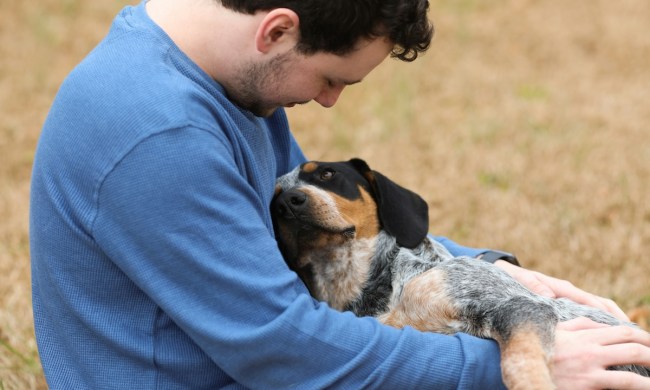Just like people, dogs have their own distinctive personalities and unique tastes. Some pups are notorious chowhounds, while others are dainty eaters. Whether your pooch has been with you for years, or you’ve recently adopted a new puppy, few things frighten a pet parent more than watching their beloved dog not eating his favorite meal.
Thankfully, your dog might refuse to eat for all sorts of reasons, not all of which are emergencies. That being said, you should never assume your pet is just a finicky eater, as he may require veterinary care. Let’s take a closer look at a few reasons your dog may not be eating — and what you should do about his loss of appetite.
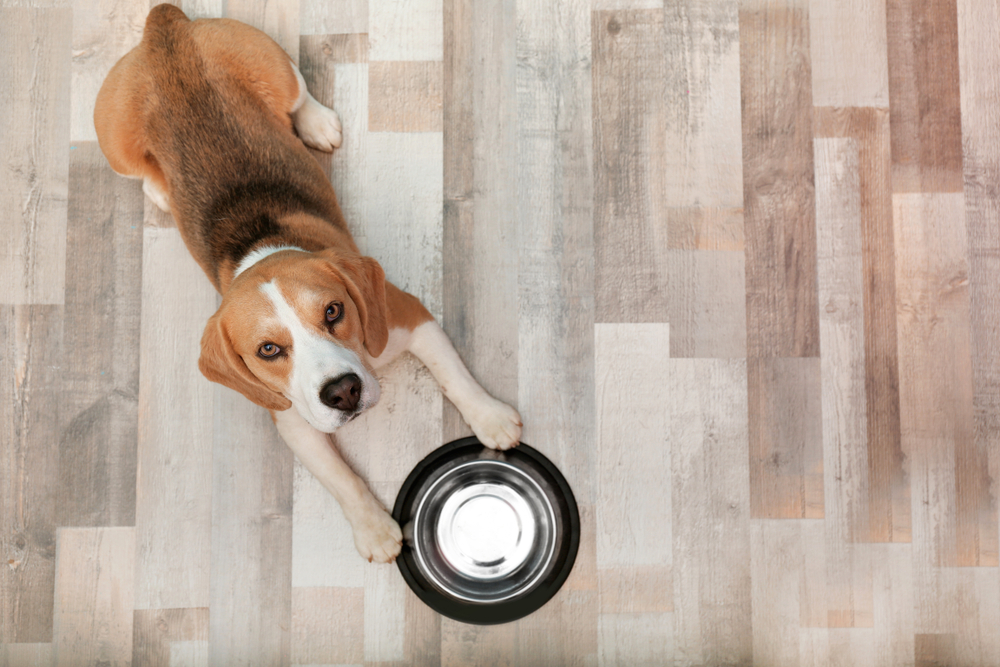
What if your dog isn’t eating but is still drinking water?
One of the first signs of any canine illness is loss of appetite, but if you’ve recently moved house, adopted another pet, had a baby, or otherwise changed your routine, your dog’s refusal to eat his dinner may be a stress response. Many dogs who feel stress or anxiety will stop eating but increase their water intake. You shouldn’t panic, but it’s always better to be safe than sorry when it comes to your dog’s health.
If additional symptoms accompany your pup’s refusal to eat, such as difficulty breathing, vomiting, or diarrhea, take him to the vet as soon as possible. We also recommend contacting your vet even if loss of appetite is his only symptom, as it may be a sign of an underlying health condition.
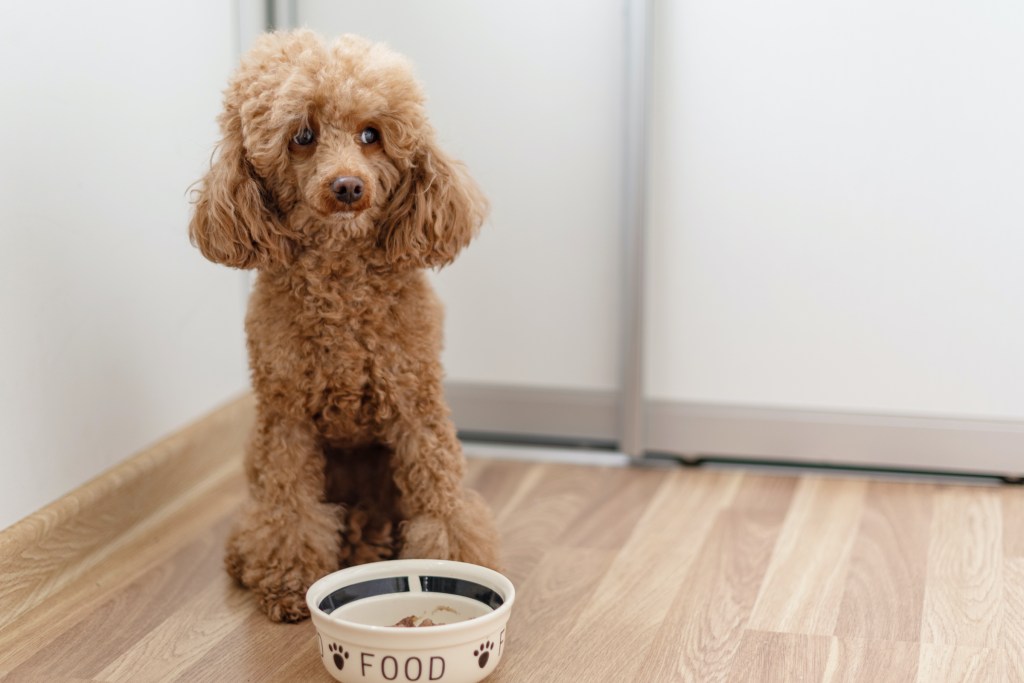
What causes loss of appetite in dogs?
Like people, dogs sometimes suffer from stomach upset after overeating. Your dog may also lose his appetite if you’ve recently switched to a different brand of kibble. But those are not the only things that could make your pup suffer from a loss of appetite. Here are a few common reasons your dog won’t eat.
Your dog’s medication is to blame
If your pooch is taking medication to manage a health condition or he’s recently received a vaccination, he may be feeling a little queasy. Some medicines cause nausea, lack of appetite, or lethargy. In most cases, these symptoms ease up within a few hours after daily medications, or a day or two after vaccinations. Talk to your veterinarian if your dog continues to refuse his food; they will be able to prescribe something for nausea, which will help stimulate your dog’s appetite.
Your dog has a dental problem
Unfortunately, dental problems are common in dogs. In fact, dental disease is one of the leading causes of veterinary visits. If your dog suddenly loses interest in his favorite kibble, it could be a sign that he’s suffering from a dental issue, such as gingivitis or periodontal disease. Additional symptoms include facial swelling, red or inflamed gums, and bad breath. Take your pup to the vet if you believe he has a dental issue. The longer you wait to seek treatment, the more likely it is that your pup could require a tooth extraction.
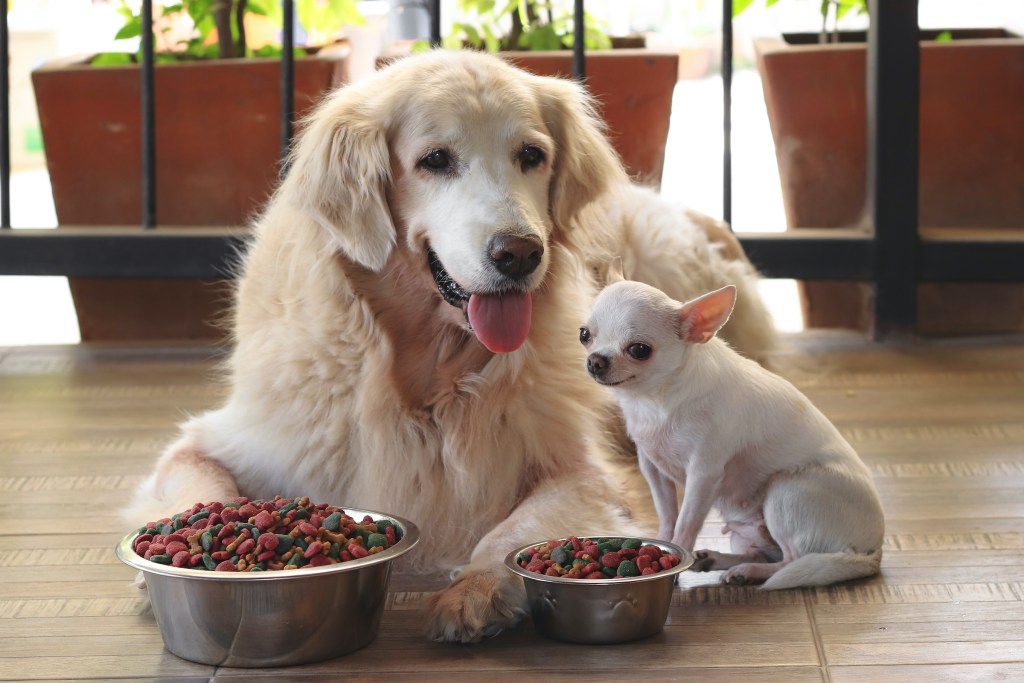
Your dog is home alone more often
Have you recently returned to work after working from home due to pandemic-related office closures? You might be glad to get back to the office, but chances are good that your pooch is less than thrilled by the transition. Ensure that your pup gets plenty of exercise, provide him with toys to keep him mentally stimulated while you’re away from home, and don’t be afraid to consult a professional if the issue persists.
Your dog isn’t feeling well
Loss of appetite can be a symptom of anything from mild stomach upset to more serious health conditions, such as heart failure or cancer. When in doubt, bring your dog to the vet for a thorough checkup.
Your dog’s a picky eater
While switching to a new food could be the culprit, what happens if your dog stops eating his favorite food? If you’ve ever bought your favorite snack only to discover the flavor isn’t quite the same as it used to be, then you know that sometimes brands reformulate their products. The same is true of dog foods. While the brand may claim it is “new and improved,” there’s a chance your pup disagrees.
Your dog’s food is stale
Just like you don’t enjoy eating stale chips, your dog doesn’t want to eat stale kibble. Buying a massive 25-pound bag of food for a tiny Chihuahua might sound like a good bargain, but the food has likely gone stale by the time you reach the bottom of the bag. If your dog weighs five pounds, stick to purchasing a five-pound bag of dog food to ensure his kibble stays fresh.
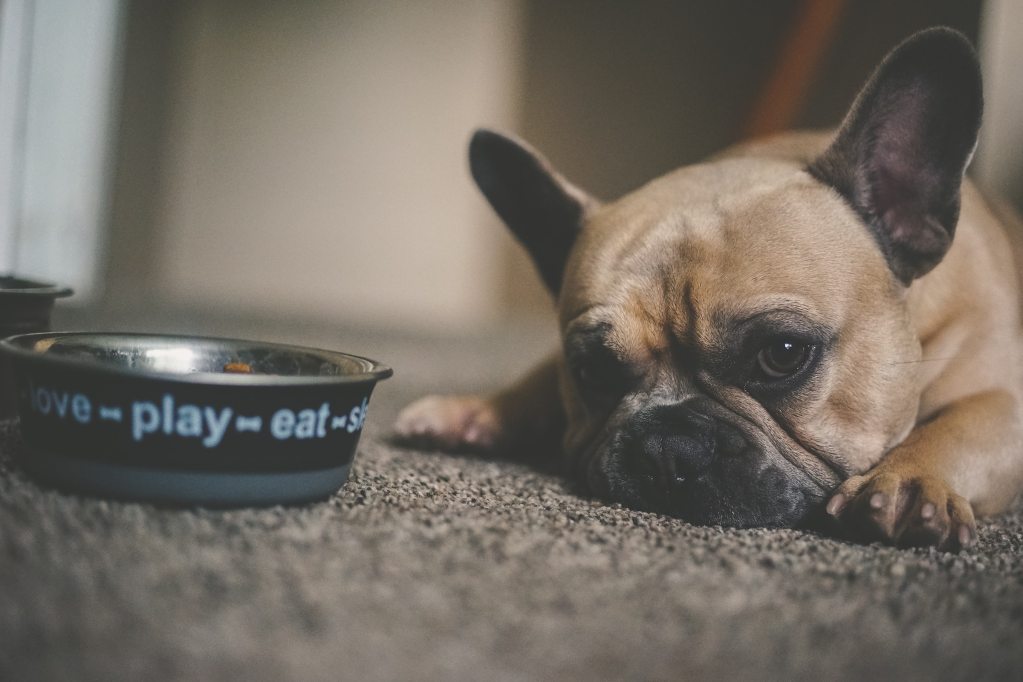
When should I worry about my dog not eating?
The American Kennel Club (AKC) says you should consult your vet within eight to 12 hours if your dog’s lack of appetite comes with additional symptoms. Dr. Ann Hohenhaus, a veterinarian at New York’s Animal Medical Center, says, “If your dog goes a couple of days without eating and nothing else is wrong — no vomiting, diarrhea, coughing, no having accidents — then I’m not that worried about it.”
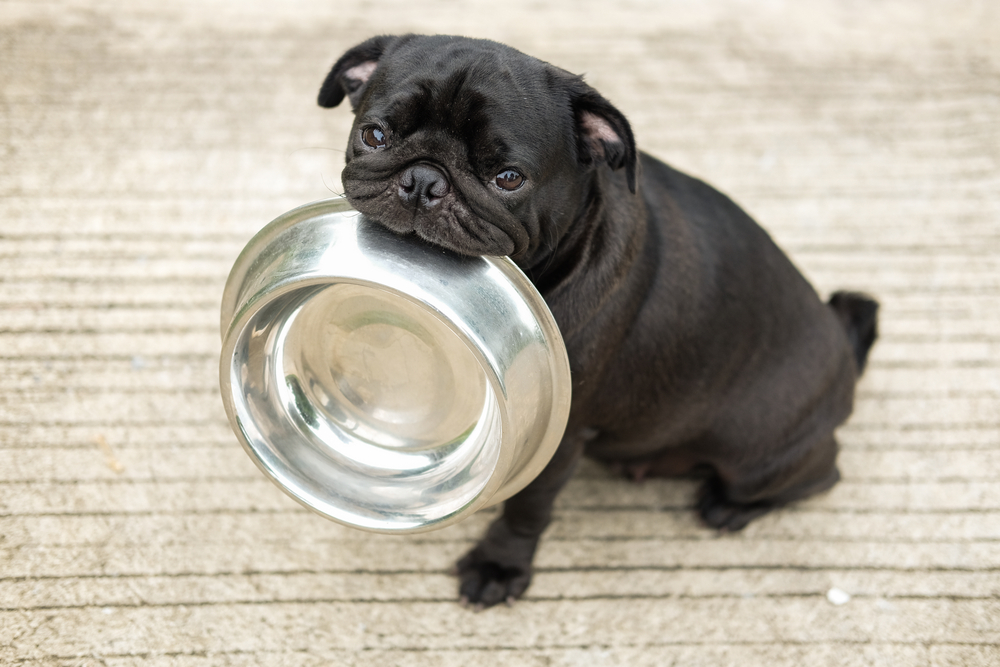
Don’t worry too much!
In most cases, your dog’s loss of appetite will resolve itself, but if other symptoms accompany Fido’s refusal to eat, you should take him to the vet. You know your dog’s eating habits better than anyone. Try not to worry too much if your dog goes a day or two without eating, but if something seems wrong, it never hurts to reach out to your vet for advice.

